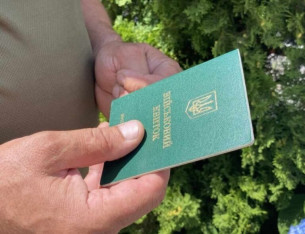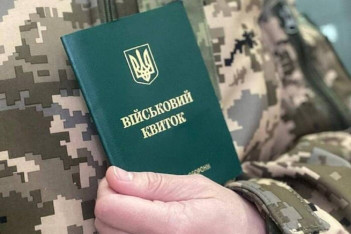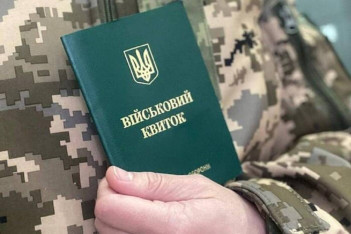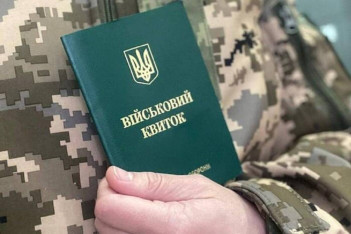Postponement of citizens who have a spouse (husband) with a disability of group I or II
Deferral of mobilization for citizens who have a wife or husband with a disability of group I or II is an important legal mechanism that allows you to provide the necessary care for persons who need special attention and support. However, to successfully obtain a deferral, it is important to go through several legal stages, collect all the necessary documents and submit an application correctly. Legal assistance in this process is indispensable, as specialists help to avoid mistakes and ensure the legal registration of the deferral.
Legal stages of deferment for citizens who have a wife (husband) with a disability of group I or II
The legal process of obtaining a deferment from the draft for citizens who have a spouse with a disability of group I or II includes several key stages:
- Legal advice on deferment for citizens who have a spouse (husband) with a disability of group I or II: The first step is to receive legal advice, where a lawyer assesses your situation, checks the availability of the necessary documents and determines whether you have grounds for receiving a deferment.
- Preparation of documents: The next stage includes the collection and execution of all necessary documents. This may include a disability certificate, marriage certificate, medical records and other supporting documents that may be required.
- Submission of an application: After collecting all the necessary documents, a lawyer for deferment of citizens who have a wife (husband) with a disability of group I or II submits an application to the relevant authorities that deal with issues of military accounting.
- Process support: Lawyers for deferment of citizens who have a wife (husband) with a disability of group I or II can also accompany the client at all stages of the case, including possible meetings or commissions.
- Appealing the refusal: In case of refusal to grant a postponement, a lawyer helps to prepare an appeal and challenge the decision in court.
All stages of the deferral registration process are important for a successful result. Legal support guarantees the correct registration of documents, assistance at each stage and protection of the client's interests, especially in the event of a need to appeal the decision.
Under what conditions can the service of registration of deferment due to care for a husband or wife with a disability of group I or II be provided?
A deferment for citizens who have a spouse (husband) with a disability of the I or II group in Ukraine can be granted under the following conditions:
- Disability of group I or II: Your husband or wife must have an officially confirmed disability of group I or II. This is the main reason for obtaining a deferral.
- Dependence on care: If a disabled spouse needs constant care and cannot take care of themselves, this can also be a valid reason for deferment.
- Availability of the necessary documents: To confirm the right to deferment, you must provide all the necessary documents, including a certificate of disability, a marriage certificate and other medical documents that confirm the state of health of your spouse.
Only if these conditions are met can you count on the successful registration of the deferral.
Under what conditions can the service of obtaining deferment for care for a husband or wife with a disability of group I or II not be provided?

Lack of supporting documents: If you cannot provide documents that prove your spouse's disability or you do not have official proof of disability.

Insufficient grounds: If your spouse's medical condition does not require ongoing care, military authorities may find that a deferment is not necessary. And in such a case, legal assistance from the postponement of citizens who have a wife (husband) with a disability of the I or II group may not be necessary.

Expiry of submission deadlines: If you applied for an extension after the deadline, this may also be grounds for rejection.
How can a person who has a wife or husband with a disability of group I or II independently obtain a deferment?
The process of deferment for citizens who have a spouse (husband) with a disability of group I or II can be started independently using the following actions:
- Familiarize yourself with the law: Study the relevant laws and regulations governing military registration and deferment for people who have relatives with disabilities.
- Prepare documents: Collect and prepare all the necessary documents yourself that confirm your spouse's disability and your need to care for them. Find out the entire list of documents for postponement of citizens who have a wife (husband) with a disability of group I or II.
- Consultation at the military commissariat: Contact the local military commissariat for consultation and clarification of the details of submitting documents.
- Application submission: Write an application and submit it together with all documents to the relevant authority.
Although independent processing of the deferment is possible, the help of a lawyer can significantly simplify this process, ensuring the correct submission of documents and preservation of the client's rights at all stages.
Frequently asked questions about deferment for persons who have a wife or husband with a disability of group I or II
Question
What documents are required for the postponement of citizens who have a wife (husband) with a disability of group I or II?
Answer
The main documents are spouse's disability certificate, marriage certificate, and medical documents confirming the need for care.
Question
How to find a lawyer for deferment of citizens who have a wife (husband) with a disability of group I or II?
Answer
To find a lawyer who specializes in draft deferment issues for citizens whose spouse has a disability of group I or II, you can use the following tips: Search the Internet: Use online platforms to find lawyers, such as specialized sites, forums or social networks, and pay attention to reviews and ratings. Contact organizations: Contact organizations that help people with disabilities or deal with the rights of military servicemen, such as human rights organizations or social services. Referrals: Ask for referrals from friends, relatives or colleagues who may know an experienced lawyer in this area. Bar Association Consultation: Contact local bar associations or associations that may provide lists of lawyers specializing in military or welfare cases. Consultations: Book a consultation with several lawyers to assess their experience and qualifications and choose the one that best suits your needs and provides the support you need.
Question
How much does a legal consultation on deferment cost for citizens who have a wife (husband) with a disability of group I or II?
Answer
The cost of legal consultation may vary depending on the region and the specific lawyer. In some cases, if the consultation is part of a comprehensive service, the cost may be included in the total fee. It is recommended that you contact several law firms or private attorneys to obtain accurate estimates. Also, it is worth checking the possibility of free consultations or assistance from public organizations.
The cost of the deferment service for citizens who have a wife (husband) with a disability of group I or II
The price of the service for processing a deferment for citizens who have a spouse (husband) with a disability of group I or II may depend on several factors. These include the complexity of the case, the need to collect additional documents, the time that will be spent on consultations and preparation of the application, as well as the presence of controversial situations that may arise during the consideration of the application. In addition, the cost may vary depending on the experience and qualifications of the lawyer, as well as the region in which the service is provided.
ВисновокObtaining a deferment for persons caring for a spouse with a disability of group I or II requires a careful approach to collecting documents and correct compliance with legal procedures. Professional assistance from a lawyer allows you to minimize the risks of errors and ensure that all legal requirements will be fulfilled correctly. Legal support is a guarantee of a successful resolution of the issue of postponement and ensuring legal protection of the client's interests.




































